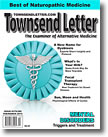Page 1, 2, 3, 4, 5, 6
Acknowledgements
I thank Mr. Bob Sealey for his helpful editing suggestions and input on the contents of this article.
Notes
1. Schetter CD, Dolbier C. Resilience in the context of chronic stress and health in adults. Soc Personal Psychol Compass, 2011;5:634–652.
2. Sterling P, Eyer J. Allostasis: a new paradigm to explain arousal pathology. In Fisher S, Reason J, eds. Handbook of Life Stress, Cognition and Health. New York: John Wiley & Sons; 1988:629–649.
3. McEwen BS. Stress, adaptation, and disease. Allostasis and allostatic load. Ann N Y Acad Sci. 1998;840:33–44.
4. McEwen BS, Getz L. Lifetime experiences, the brain and personalized medicine: an integrative perspective. Metabolism. 2013;62:S20–S26.
5. McNiel DE, Gormley B, Binder RL. Leverage, the treatment relationship and treatment participation. Psych Serv, 2013;64:431–436.
6. Burns T, Rugkåsa J, Molodynski A, et al. Community treatment orders for patients with psychosis (OCTET): a randomized controlled trial. Lancet. 2013;381:1627–1633.
7. Moncrieff J, Cohen D. Do antidepressants cure or create abnormal brain states? PLoS Med. 2006;3(7):e240.
8. Moncrieff J, Cohen D. How do psychiatric drugs work? BMJ. 2009;338:1535–1537.
9. Jacobs D, Cohen D. What is really known about the psychological alterations produced by psychiatric drugs? Int J Risk Safety Med. 1999;12:37–47.
10. Breggin PR. Intoxication anosognosia: the spellbinding effect of psychiatric drugs. Ethical Hum Psychol Psychiatry. 2006;8:201–215.
11. STAR*D Investigators Group (Rush AJ, Fava M, Wisniewski SR, et al). Sequenced treatment alternatives to relieve depression (STAR*D). rationale and design. Control Clin Trials. 2004;25:119–142.
12. Trivedi MH, Rush AJ, Wisniewski SR, et al. Evaluation of outcomes with citalopram for depression using measurement-based care in STAR*D: implications for clinical practice. Am J Psychiatry. 2006;163:28–40.
13. Rush AJ, Trivedi MH, Wisniewski SR, et al. Bupropion-SR, sertraline, or venlafaxine-XR after failure of SSRIs for depression. N Engl J Med. 2006;354:1231–1242.
14. Rush AJ, Trivedi MH, Wisniewski SR, et al. Acute and longer-term outcomes in depressed outpatients requiring one or several treatment steps: a STAR*D report. Am J Psychiatry. 2006;163:1905–1917.
15. Trivedi MH, Fava M, Wisniewski SR, et al. Medication augmentation after the failure of SSRIs for depression. N Engl J Med. 2006;354:1243–1252.
16. Sachs GS, Thase ME, Otto MW, et al. Rationale, design, and methods of the systematic treatment enhancement program for bipolar disorder (STEP-BD). Biol Psychiatry. 2003;53:1028–1042.
17. Perlis RH, Ostacher MJ, Patel JK, et al. Predictors of recurrence in bipolar disorder: primary outcomes from the Systematic Treatment Enhancement Program for Bipolar Disorder (STEP-BD). Am J Psychiatry. 2006;163:217–224.
18. Nierenberg AA, Ostacher MJ, Calabrese JR, et al. Treatment-resistant bipolar depression. a STEP-BD equipoise randomized effectiveness trial of antidepressant augmentation with lamotrigine, inositol, or risperidone. Am J Psychiatry. 2006;163:210–216.
19. Fagiolini A, Kupfer DJ, Masalehdan A, et al. Functional impairment in the remission phase of bipolar disorder. Bipolar Disord. 2005;7:281–285.
20. Clinical Antipsychotic Trials of Intervention Effectiveness (CATIE) Investigators (Lieberman JA, Stroup TS, McEvoy JP, et al). Effectiveness of antipsychotic drugs in patients with chronic schizophrenia. N Engl J Med. 2005;353:1209–1223.
21. Swartz MS, Perkins DO, Stroup T, et al. Effects of antipsychotic medications on psychosocial functioning in patients with chronic schizophrenia: findings from the NIMH CATIE study. Am J Psychiatry. 2007;164:428–436.
22. Stroup TS, Lieberman JA, McEvoy JP, et al. Effectiveness of olanzapine, quetiapine, and risperidone in patients with chronic schizophrenia after discontinuing perphenazine: a CATIE study. Am J Psychiatry. 2007;164:415–427.
23. Lieberman JA. Comparative effectiveness of antipsychotic drugs. A commentary on: Cost Utility Of The Latest Antipsychotic Drugs In Schizophrenia Study (CUtLASS 1) and Clinical Antipsychotic Trials Of Intervention Effectiveness (CATIE). Arch Gen Psychiatry. 2006;63:1069–1072.
24. Whitaker R. Anatomy of an epidemic: psychiatric drugs and the astonishing rise of mental illness in America. Ethical Hum Psychol Psychiatry. 2005;7:23–35.
25. Whitaker R. Anatomy of an Epidemic: Magic Bullets, Psychiatric Drugs, and the Astonishing Rise of Mental Illness in America. New York: Broadway Paperbacks; 2010.
26. Harrow M, Grossman LS, Jobe TH, et al. Do patients with schizophrenia ever show periods of recovery? A 15-year multi-follow-up study. Schizophr Bull. 2005;31:723–734.
27. Harrow M, Jobe TH. Does long-term treatment of schizophrenia with antipsychotic treatment facilitate recovery? Schizophr Bull. 2013.
28. Jesić MP, Jesić A, Filipović JB, et al. Extrapyramidal syndromes caused by antipsychotics. Med Pregl. 2012;65:521–526.
29. Lader M. Long-term treatment of anxiety: benefits and drawbacks. Psychopharmacol Ser. 1988;5:169–179.
30. El-Mallakh RS, Waltrip C, Peters C. Can long-term antidepressant use be depressogenic? J Clin Psychiatry. 1999;60:263–264.
31. Fava GA. Can long-term treatment with antidepressant drugs worsen the course of depression? J Clin Psychiatry. 2003;64:123–133.
32. El-Mallakh RS, Gao Y, Jeannie Roberts R. Tardive dysphoria: the role of long term antidepressant use in-inducing chronic depression. Med Hypotheses. 2011;76:769–773.
33. Huxley N, Baldessarini RJ. Disability and its treatment in bipolar disorder patients. Bipolar Disord. 2007;9:183–196.
34. Middleton H, Moncrieff J. 'They won't do any harm and might do some good': time to think again on the use of antidepressants? Br J Gen Pract. 2011;61:47–49.
35. Horvath AO, Del Re AC, Flückiger C, et al. Alliance in individual psychotherapy. Psychotherapy (Chic). 2011;48:9–16.
36. Getz L, Kirkengen AL, Ulvestad E. The human biology – saturated with experience. Tidsskr Nor Laegeforen. 2011;131:683–687.
37. Sharma MP, Mao A, Sudhir PM. Mindfulness-based cognitive behavior therapy in patients with anxiety disorders: a case series. Indian J Psychol Med. 2012;34:263–269.
38. Arch JJ, Ayers CR, Baker A, et al. Randomized clinical trial of adapted mindfulness-based stress reduction versus group cognitive behavioral therapy for heterogeneous anxiety disorders. Behav Res Ther. 2013;51:185–196.
39. Zeidan F, Martucci KT, Kraft RA, et al. Neural correlates of mindfulness meditation-related anxiety relief. Soc Cogn Affect Neurosci. 2013; [Epub ahead of print].
40. Meltzer H, Bebbington P, Dennis MS, et al. Feelings of loneliness among adults with mental disorder. Soc Psychiatry Psychiatr Epidemiol. 2013;48:5–13.
41. Danckert J. Descent of the doldrums. Sci Am Mind. 2013;24(3):54–59.
42. Steptoe A, Shankar A, Demakakos P, et al. Social isolation, loneliness, and all-cause mortality in older men and women. Proc Natl Acad Sci U S A. 2013;110:5797–5801.
43. Lipsitz JD, Marshall R. Alternative psychotherapy approaches for social anxiety disorder. Psychiatr Clin North Am. 2001;24:817–829.
44. Cook JA, Copeland ME, Jonikas JA, et al. Results of a randomized controlled trial of mental illness self-management using Wellness Recovery Action Planning. Schizophr Bull. 2012;38:881–889.
45. Pratt R, MacGregor A, Reid S, et al. Experience of wellness recovery action planning in self-help and mutual support groups for people with lived experience of mental health difficulties. Sci World J. 2013;2013:180587.
46. Higgins A, Callaghan P, DeVries J, et al. Evaluation of mental health recovery and Wellness Recovery Action Planning education in Ireland: a mixed methods pre-postevaluation. J Adv Nurs. 2012;68:2418–2428.
47. Cook JA, Copeland ME, Floyd CB, et al. A randomized controlled trial of effects of Wellness Recovery Action Planning on depression, anxiety, and recovery. Psychiatr Serv. 2012;63:541–547
48. Jonikas JA, Grey DD, Copeland ME, et al. Improving propensity for patient self-advocacy through wellness recovery action planning: results of a randomized controlled trial. Community Ment Health J. 2013;49:260–269.
49. Walsh R. Lifestyle and mental health. Am Psychol. 2011;66:579–592.
50. Davison KM, Kaplan BJ. Nutrient intakes are correlated with overall psychiatric functioning in adults with mood disorders. Can J Psychiatry. 2012;57:85–92.
51. Torres SJ, Nowson CA, Worsley A. Dietary electrolytes are related to mood. Br J Nutr. 2008;100:1038–1045.
52. Meyer-Lindenberg A. Big city blues. Sci Am Mind. 2013;24(1):59–61.
53. Sedky K, Akhtar U, Oluwabusi O. The ABCDEs of obstructive sleep apnea. Curr Psychiatry. 2013;12(2):41–42.
54. Anderson KN, Bradley AJ. Sleep disturbance in mental health problems and neurodegenerative disease. Nat Sci Sleep. 2013;5:61–75.
55. Kaplan BJ, Crawford SG, Field CJ, et al. Vitamins, minerals, and mood. Psychol Bull. 2007;133:747–760. Lakhan SE, Vieira KF. Nutritional therapies for mental disorders. Nutr J. 2008;7:2.
56. Lakhan SE, Vieira KF. Nutritional and herbal supplements for anxiety and anxiety-related disorders: systematic review. Nutr J. 2010;9:42.
57. Pennington VM. Enhancement of psychotropic drugs by a vitamin supplement. Psychosomatics. 1966;7:115–120.
58. McLeod MN, Gaynes BN, Golden RN. Chromium potentiation of antidepressant pharmacotherapy for dysthymic disorder in 5 patients. J Clin Psychiatry. 1999;60:237–240.
59. Bell IR, Edman JS, Morrow FD, et al. Brief communication. Vitamin B1, B2, and B6 augmentation of tricyclic antidepressant treatment in geriatric depression with cognitive impairment. J Am Coll Nutr. 1992;11:159–163.
60. Godfrey PS, Toone BK, Carney MW, et al. Enhancement of recovery from psychiatric illness by methylfolate. Lancet. 1990;336:392–395.
61. Coppen A, Bailey J. Enhancement of the antidepressant action of fluoxetine by folic acid: a randomised, placebo controlled trial. J Affect Disord. 2000;60:121–130.
62. Lafleur DL, Pittenger C, Kelmendi B, et al. N-acetylcysteine augmentation in serotonin reuptake inhibitor refractory obsessive-compulsive disorder. Psychopharmacology (Berl). 2006;184:254–256.
63. Resler G, Lavie R, Campos J, et al. Effect of folic acid combined with fluoxetine in patients with major depression on plasma homocysteine and vitamin B12, and serotonin levels in lymphocytes. Neuroimmunomodulation. 2008;15:145–152.
64. Kjaergaard M, Waterloo K, Wang CE, et al. Effect of vitamin D supplement on depression scores in people with low levels of serum 25 hydroxyvitamin D: nested case-control study and randomised clinical trial. Br J Psychiatry. 2012;201:360–368.
65. Vieth R, Kimball S, Hu A, Walfish PG. Randomized comparison of the effects of the vitamin D3 adequate intake versus 100 mcg (4000 IU) per day on biochemical responses and the wellbeing of patients. Nutr J. 2004;3:8.
66. Jangid P, Malik P, Singh P, et al. Comparative study of efficacy of L-5-hydroxytryptophan and fluoxetine in patients presenting with first depressive episode. Asian J Psychiatr. 2013;6:29–34.
67. Brody S, Preut R, Schommer K, et al. A randomized controlled trial of high dose ascorbic acid for reduction of blood pressure, cortisol, and subjective responses to psychological stress. Psychopharmacology (Berl). 2002;159:319–324.
68. Carroll D, Ring C, Suter M, et al. The effects of an oral multivitamin combination with calcium, magnesium, and zinc on psychological well-being in healthy young male volunteers: a double-blind placebo-controlled trial. Psychopharmacology (Berl). 2000;150:220–225.
69. Patak P, Willenberg HS, Bornstein SR. Vitamin C is an important cofactor for both adrenal cortex and adrenal medulla. Endocr Res. 2004;30:871–875.
70. Cheraskin E. Are there merits in sustained-release preparations? J Orthomol Med. 2001;16:9–51.
71. De Lorenzo A, Andreoli A, Sinibaldi Salimei P, et al. Determination of the blood ascorbic acid level after administration of slow-release vitamin C [Article in Italian; Abstract Only]. Clin Ter. 2001;152:87–90.
72. Yung S, Mayersohn M, Robinson JB. Ascorbic acid absorption in humans: a comparison among several dosage forms. J Pharm Sci. 1982;71:282–285.
73. Allen RJ. Human Stress: Its Nature and Control. New York: Macmillan Publishing Company; 1983.
74. Stough C, Scholey A, Lloyd J, et al. The effect of 90 day administration of a high dose vitamin B-complex on work stress. Hum Psychopharmacol. 2011;26:470–476.
75. Lewis JE, Tiozzo E, Melillo AB, et al. The effect of methylated vitamin B complex on depressive and anxiety symptoms and quality of life in adults with depression. ISRN Psychiatry. 2013:621453.
76. Harris E, Kirk J, Rowsell R, et al. The effect of multivitamin supplementation on mood and stress in healthy older men. Hum Psychopharmacol. 2011;26:560–567.
77. Sublette ME, Hibbein JR, Galfalvy H, et al. Omega-3 polyunsaturated essential fatty acid status as a predictor of future suicide risk. Am J Psychiatry. 2006;163:1100–1102.
78. Amminger GP, Schäfer MR, Papageorgiou K, et al. Long-chain omega-3 fatty acids for indicated prevention of psychotic disorders: a randomized, placebo-controlled trial. Arch Gen Psychiatry. 2010;67:146–154.
 Jonathan E. Prousky, ND, MSc Jonathan E. Prousky, ND, MSc
Chief Naturopathic Medical Officer, Professor,
Canadian College of Naturopathic Medicine
1255 Sheppard Avenue East
Toronto, Ontario, M2K 1E2
416-498-1255, ext. 235
jprousky@ccnm.edu; www.jonathanprouskynd.com
Editor, Journal of Orthomolecular Medicine
editor@orthomed.org
This article is based on a presentation delivered at the Orthomolecular Medicine Today Conference, Toronto, Ontario; April 27, 2013. This is an updated version of a similar article that appeared in the Journal of Orthomolecular Medicine. 2013;28(3):111–130.
Page 1, 2, 3, 4, 5, 6 |
![]()





 Jonathan E. Prousky, ND, MSc
Jonathan E. Prousky, ND, MSc